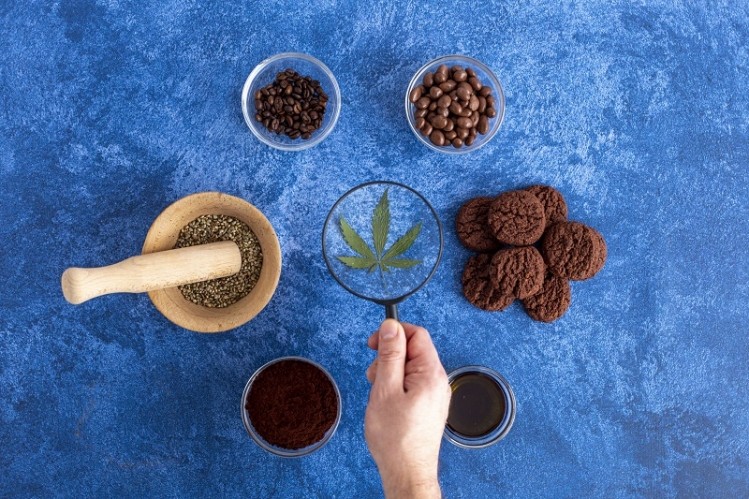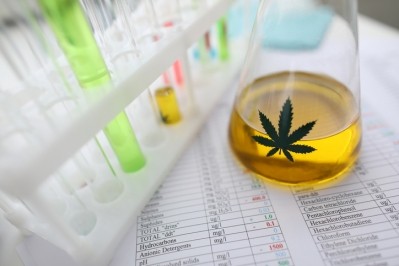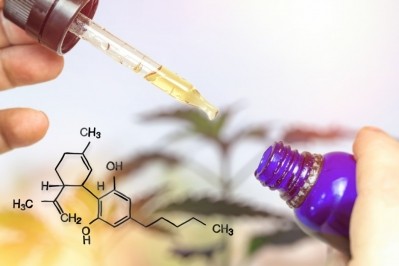UK CBD industry body becalmed after novel foods applications clarification

CBD manufacturers will have to submit a Novel Food application to be legally sold in the UK market after Brexit. The FSA has set a deadline for submissions of 31 March 2021.
Toxicology studies will be required
However, industry body the Association for the Cannabinoid Industry (ACI) had complained there was a lack of clarity from the FSA on the issue of whether companies would need to carry out their own toxicity studies or rely on the results from publicly available studies to support their applications.
The Advisory Council for Novel Foods and Processes (ACNFP), an advisory committee to the FSA, has since said that relying on publicly available data will not be sufficient for a novel foods dossier to be authorised.
The most recent ACNFP meeting minutes noted “there are still gaps in the toxicological data package around systemic toxicity and human bioavailability.”
According to the FSA, applicants will therefore need to include details of the toxicological studies they have undertaken or propose to undertake with clear details of the reasoning for these particular tests.
Finished products are required to have their own dossiers
Further confusion had related to whether all finished products need to be included in the primary ingredient manufacturer’s application.
In response, the ACI noted it had been contacted by dozens of brands asking for clarity on what the responsibility of a brand is in regard to their products. It said it was now clear from the ACNFP minutes “that individual finished products will potentially require further bioavailability studies to prove their safety and will be required to be included in a novel foods dossier.”
The ACNFP meeting minutes noted there will “likely be variation between the purity of the extracts destined for use in foods and proportions of minor components present between different novel food applications and therefore product specific characterisation data will be important. Members also noted that bioavailability is likely to vary considerably between CBD in different matrices or co-consumed with foods and data to support the properties and human systemic exposure from each product will be important.”
They also revealed: “Members generally considered that separate applications should be submitted for each product, but they could share study data and evidence between them if the use of such data can be scientifically justified as part of their risk assessment.”
A consortium approach will be accepted, provided the justification is sound
The ACI has launched a CBD safety study consortium to generate data and share the burden of costs for companies submitting a Novel Food application for an edible CBD product: an approach it says appears validated. The ACNFP stated in its minutes that “a shared package of toxicology studies would be acceptable in circumstances that could be scientifically justified.”
The ACI, a body which has consistently stated its commitments to building a ‘sustainable, safe and fully compliant CBD industry', said it was “pleased to see that the official bodies who will oversee the UK’s novel foods applications fully vindicate our approach to achieving novel foods compliance; whether through our consortium, or our consultancy service on finished products”.
Clarification important as UK CBD seeks to capitalise amid European regularity confusion
These clarifications are significant for the UK CBD industry as it attempts to take the global lead on CBD in food post-Brexit.
The EU regulatory environment remains in a quagmire, with all eyes on whether the European Commission will continue with its plan to classify CBD a narcotic substance.
Determining this will be the KanaVape case on November 19, while on 2 December, the United Nations Commission on Narcotic Drugs will decide whether to implement World Health Organisation recommendations to ease restrictions on cannabis and CBD.
Dr Andy Yates, Pharmacy Lead at the ACI, told FoodNavigator: “The ACNFP are the body that will be assessing all UK novel food submissions from the 1st January 2021. Therefore, their recent minutes in relation to CBD are the clearest steer yet on what is going to be required from manufacturers of supplements and food containing CBD when they start assessing dossiers for validation and approval next year.
“There is no longer any room for complacency, ignorance or burying your head in the sand. Relying on publicly available data will not be sufficient and new toxicology studies will be required. A consortium approach will be accepted, provided the justification is sound and all finished products are required to have their own dossiers. In other words, it’s completely aligned to the approach the ACI has been advocating and has begun implementing with its members.”















